Today we are going to have a look at the Lenovo ThinkEdge SE50. This is Lenovo’s edge IoT system that brings a lot of connectivity options into a passively cooled chassis. In our review, we are going to take a look at the system to see how it fares and how Lenovo built the appliance.
Lenovo ThinkEdge SE50 Hardware Overview
As we have been doing with many systems recently, we are going to start with the external hardware overview, then we are going to take a look inside to see how the system works.
Lenovo ThinkEdge SE50 External Hardware Overview
The system itself is made for mounting in cabinets or even on a shop floor. It is a heavy-duty metal chassis with a few interesting features that clearly separate it from some of the other Lenovo IoT boxes we have looked at.
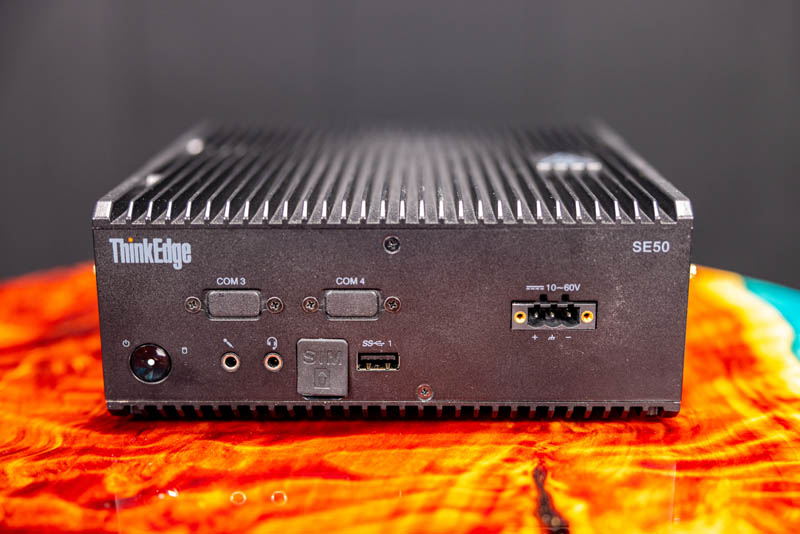
On the front of the system, we can see blanks for two COM ports that were not populated in our test system. Somewhat interesting for a machine like this we also get a microphone input as well as a headset input. We also see the first USB 3 port on the front of this system.
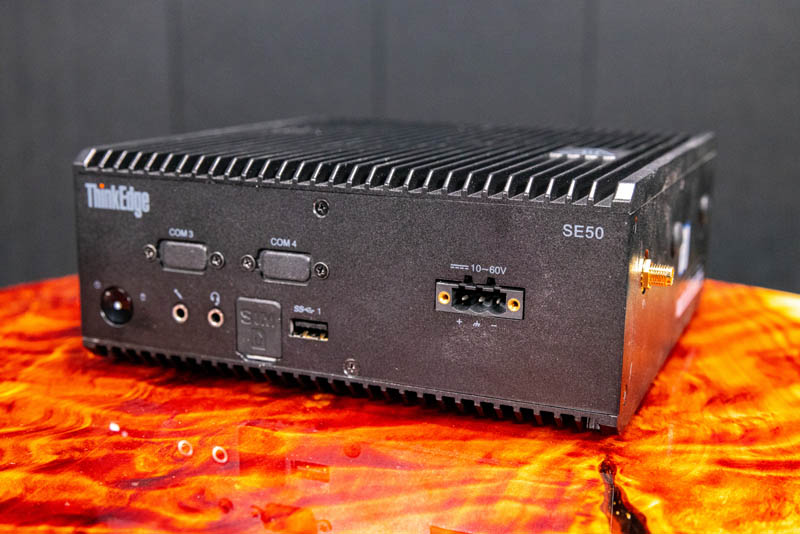
One item that is a bit different is that we get a 3-pin power input. When we looked at the M90n-IoT, M75n-IoT, and even the SE350, we saw either a standard Lenovo notebook power adapter input or a standard C13/C14 input. Here, we get a solution to fix a power supply in place via screws. Lenovo also provided us with an adapter so we could use a standard power adapter with this input setup.
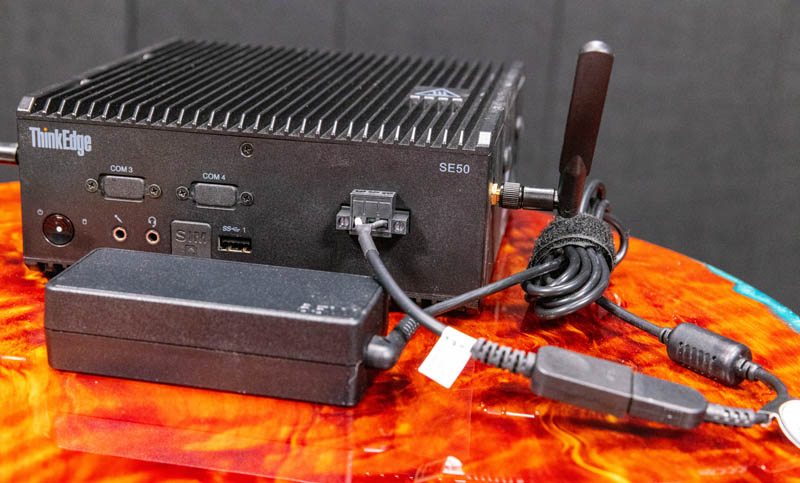
Another interesting feature here is that there is a SIM card slot. If you want to add WWAN, then there is a SIM card slot that is accessible behind this small door. It does not feel overly secure behind the door, but it seems like Lenovo’s engineers put some thought into this.
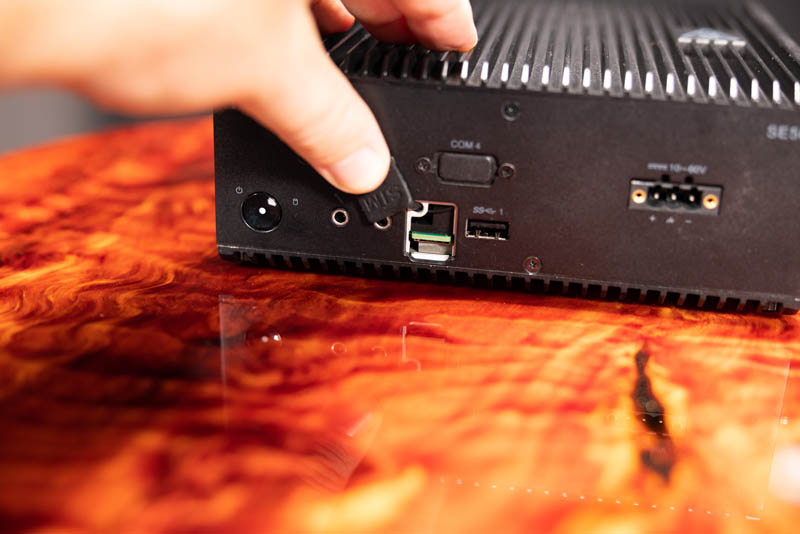
Also along the side of the chassis, we have three antenna mounting points on the right side, two on the left, and one on the rear. We only had WiFi and not 4G/5G LTE so we only had a pair of these utilized.
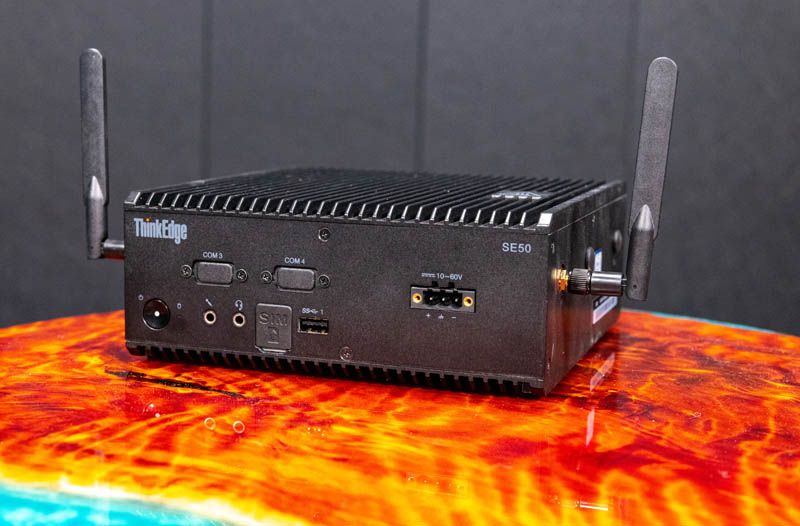
Something that was somewhat fun with this system is that it came with dust/ protective covers on everything.
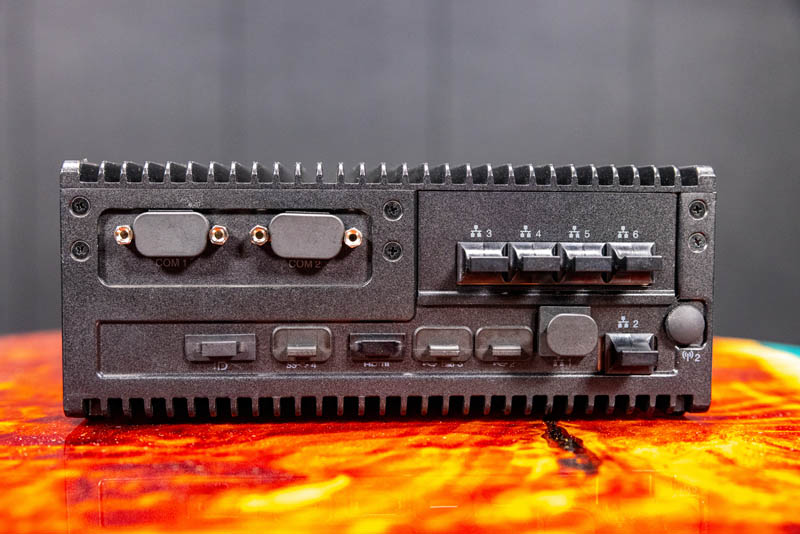
Underneath those covers, we have the main I/O block at the bottom with DisplayPort and HDMI out, a USB 3 port, two USB 2.0 ports, and two 1GbE NICs.
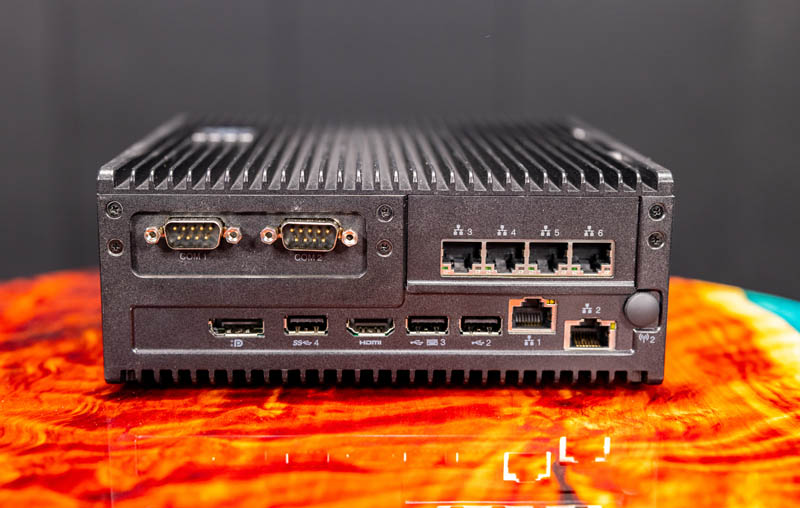
The two slots above that bottom I/O are customizable. Lenovo has various options for industrial automation buses and so forth, but we have a pair of COM ports on the left. On the right, we have four 1GbE ports. Again, this is our configuration, and Lenovo has a lot of options here.
Underneath the system, we were using the rubber feet, but there is also an array of mounting points. These mounting points can be used for various mounting options including DIN kits that Lenovo has.
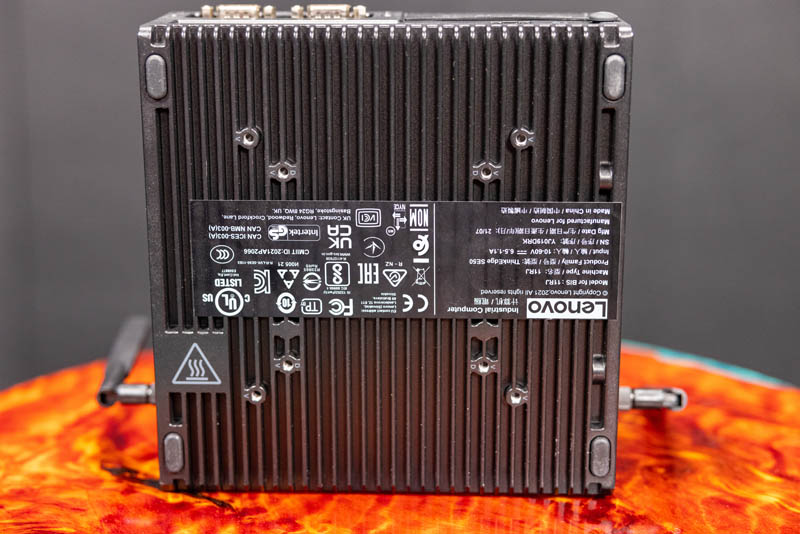
Something that you will quickly notice is that this system is passively cooled. That means there are no openings for vents nor are there internal fans. The metal casing is certainly large to be able to handle the added cooling load.
Next, we are going to take a look inside this system.

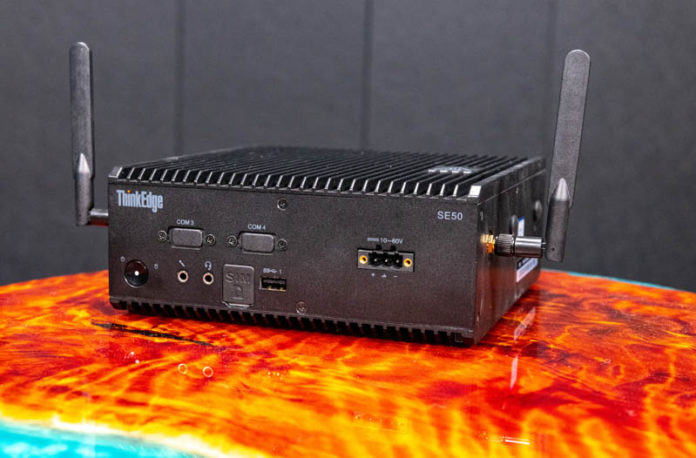
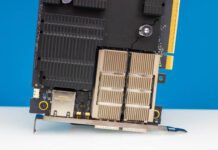
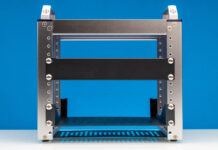
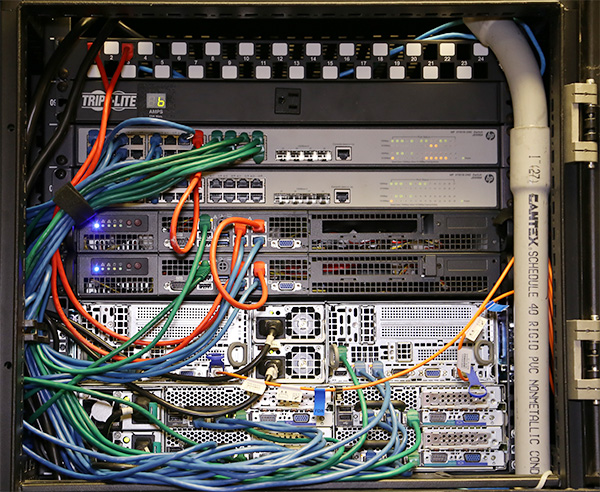
1G is common also because fiber can’t handle dust as well
So what would be a good use for this thing in the home?
@Seth pfSense comes to mind.
@samir
Ok, I was thinking along the same lines.
Thank you.
6 NICS? So is this like a router? My first thought was ‘is it a switch?’, but switches shouldn’t have NICS (unless L3 switches, of course). . I’m a bit confused what this is for, exactly